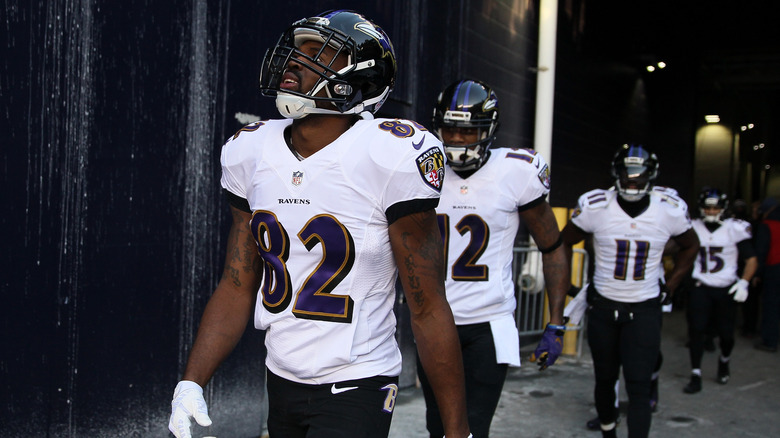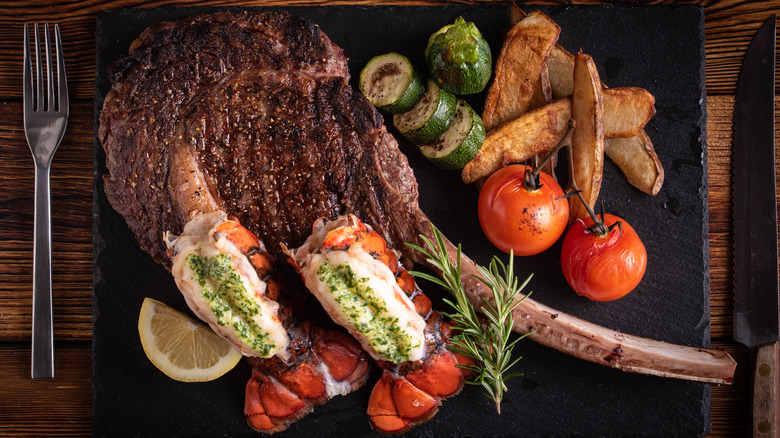The NFL's Controversial Rookie Dinner Has Players Speaking Out
If you've ever splurged on a night out at a top-tier steakhouse, you know that the bill can climb very high, very fast. So imagine how high that bill might go if you were buying for 10 people who were set on running that tab up as high as possible. This is the position many rookie NFL players have found themselves in over the years at the sport's annual "rookie dinners," which have recently had a spotlight shined on them by sports podcast "The Pivot" and an article by the New York Times.
According to the NYT, many NFL players go out to dinner with new members of their team before the season begins under the guise of a bonding experience. The team will then proceed to run up enormous tabs, with players ordering decadent dishes like steak, lobster, and high-end wine and cognac before sticking the young rookie (or rookies in some cases) with the bill.
While some players defend this practice as a tradition and a bonding experience, others, including two-time Super Bowl winner Torrey Smith, compare it to college fraternity hazing, saying, "This dinner sets a precedent for a lifestyle that the majority of players cannot afford to do and shouldn't be living anyway."
Bonding or bullying?
Although the New York Times, via the San Francisco Examiner, reports that rookie dinners have been a thing since the 1970s, critics argue the NFL should crack down on them, especially since the league's pay structure has changed since then. Rookies used to receive large signing bonuses along with their salaries which often made them some of the higher-paid players on the team, but that changed in 2011 when the NFL instituted a wage cap on first-year players' salaries that led to many veteran players out-earning their younger counterparts. Still, many of these higher-earning, more experienced players insist on sticking their new teammates with five-figure dinner bills. Delish notes that these rookie dinners cost thousands of dollars, with low-end meals breaking $3,000 and some costing over $50,000.
Smith says that many players coming into the league are very young and inexperienced financially, and argues that the dinners are wasteful and can encourage reckless spending habits for young men who may not have long careers in the sport. NYT reports that while new players may earn salaries in the high six figures, the average player lasts just three seasons in the game and 15% of league alumni declare bankruptcy within 12 years of retiring, making a $30,000 dinner seem like a much worse idea.
The NFL has made no official statement on the dinner controversy.

